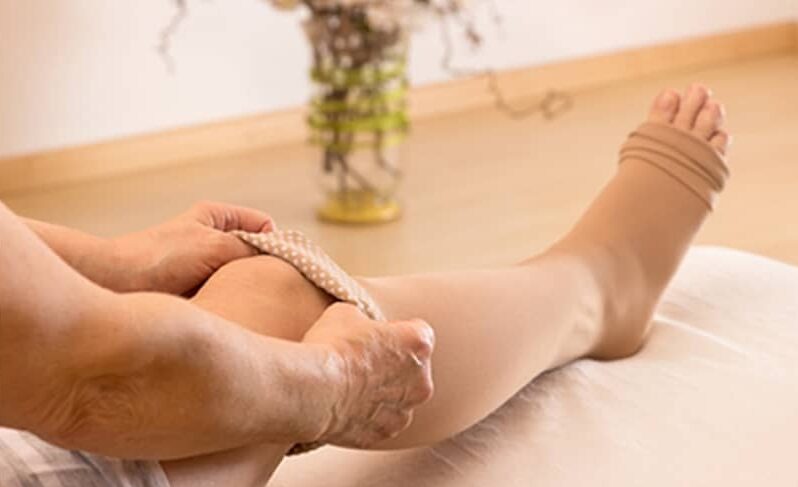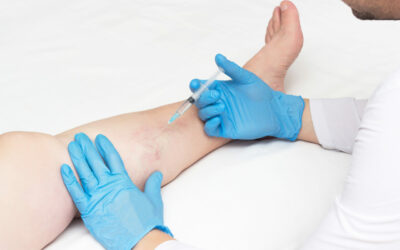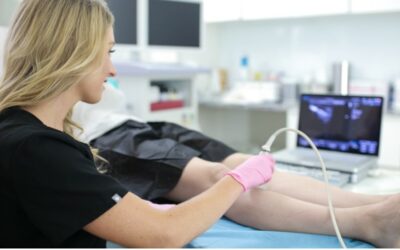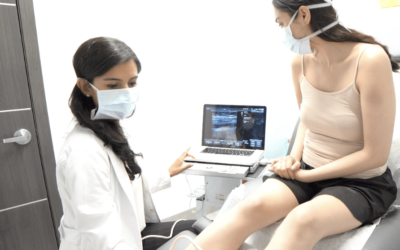What Kind of Doctor Treats Varicose Veins?
What Kind of Doctor Treats Varicose Veins?
Varicose veins are treated by vein doctors, officially known as phlebologists. Vein doctors are medical professionals with specialized training in the diagnosis and treatment of vein problems, such as spider veins, varicose veins, chronic venous insufficiency, and deep vein thrombosis. Vein doctors can come from numerous medical fields, such as dermatology, cardiology, anesthesiology, and cosmetic surgery, but they must have specialized training in vein problems and minimally invasive vein treatments.
However, instead of consulting a general doctor who provides vein treatments as one of several services, you should find a dedicated vein doctor in Texas. You can look for vein doctors at the leading vein treatment clinics in Houston because they’re more likely to focus exclusively on vein care. You must also ensure that the vein doctor specializes in minimally invasive spider vein and varicose vein treatments, such as radiofrequency ablation, endovenous laser ablation, sclerotherapy, and venaseal.
Do Dermatologists Treat Varicose Veins?
Dermatology is the branch of medicine dealing with skin problems, and dermatologists are officially trained to address skin diseases. However, some dermatologists also have specialized training in the diagnosis and treatment of spider veins and varicose veins. They might provide treatments like sclerotherapy and laser therapy for spider veins — these procedures are commonly offered in medical spas, as well.
However, you should avoid dermatologists that provide vein treatments as one of their many services. That’s because vein disease isn’t a skin problem, and vein treatments should be performed by medical professionals who understand veins. Dermatologists often provide cosmetic relief from spider veins, but they don’t address the underlying root cause, leading to a high risk of vein disease recurrence.
As such, even though your neighborhood dermatologist may provide spider vein and varicose vein treatments, you should look for vein treatment clinics in Texas.

Why are my Veins Popping out on my Legs?
If your veins are popping out of your legs, you probably have varicose veins. When excess blood accumulates in your leg veins, the dilated veins may bulge out of the skin’s surface, often resembling a mass of twisted, tangled, or knotted ropes. If you have bulging leg veins, also known as varicose veins, you probably have underlying chronic venous insufficiency.
Chronic venous insufficiency is the root cause of varicose veins and most other vein problems. This is a medical condition wherein your vein valves collapse and blood flows backward, eventually accumulating in your leg veins. The accumulation of blood in leg veins leads to increased pressure on the vein walls, which, in turn, leads to vascular dilation and varicose veins.
BOOK AN APPOINTMENT
Vein Treatments are covered by most major medical insurances, including Medicare. Verify your coverage for FREE today!
What Exercise is Best for Varicose Veins?
If you have varicose veins, you should engage in cardiovascular exercises that work your calf muscles, such as running, cycling, swimming, and yoga. These exercises improve blood circulation and encourage your calf muscles to push the accumulated blood towards the heart, thereby alleviating discomfort from your leg veins. However, it’s worth noting that these exercises only provide temporary relief from the discomfort of varicose veins — they can’t treat or reverse varicose veins.
Are Compression Socks Good for Varicose Veins?
Yes, compression socks are great for varicose veins. Compression stockings are tight-fitting garments that apply pressure on the vein walls, pushing the accumulated blood towards the heart. However, compression stockings also provide temporary relief — they can’t fix the broken or damaged vein valves. The only way to achieve long-lasting relief from varicose veins is through minimally invasive varicose vein treatments.
How Many Hours a day Should you Wear Compression Stockings?
If you don’t have varicose veins or vein disease, you can wear compression stockings for a few hours a day. This will minimize the risk of vein disease and varicose veins. If you have varicose veins, you may need to wear compression stockings throughout the day (but not while sleeping) to minimize vascular dilation. Your vein doctor will recommend the ideal schedule for your compression stockings.
How can I Stop Varicose Veins From Getting Worse?
If you want to stop varicose veins from worsening, you should engage in activities and lifestyle changes that improve blood circulation and push the accumulated blood towards your heart. The following are some tips to prevent varicose veins from worsening:
- Wear compression stockings regularly
- Engage in cardiovascular activities that work your calf muscles — running, swimming, cycling
- Elevate your legs above your heart’s level while sitting
- If you have a desk job, take short walking breaks after every 30 minutes
- Don’t sit or stand still in one place for too long
What Causes Varicose Veins?
Chronic venous insufficiency is the primary root cause of varicose veins, spider veins, and most other vein problems. Venous insufficiency is a medical condition where your vein valves malfunction or collapse. In healthy veins, the valves act as one-way doors to facilitate blood circulation towards the heart. When your vein valves collapse, blood flows backward due to gravity and accumulates in the leg veins, which eventually leads to vascular dilation and varicose veins.
What are Non-invasive Vein Treatments?
Non-invasive vein treatments are medical procedures that treat or reduce your spider veins and varicose veins without injections or incisions. Laser therapy is one of the most common non-invasive treatments for spider veins, usually offered at medical spas, but it doesn’t treat underlying chronic venous insufficiency.
If you have spider veins and varicose veins, you should opt for minimally invasive vein treatments, such as sclerotherapy, radiofrequency ablation, and endovenous laser ablation. These are in-office and outpatient procedures that usually involve small incisions or injections, with no hospitalization or downtime. Furthermore, they have a nearly perfect success rate.
Where to get Sclerotherapy?
You can consult our state-of-the-art vein treatment clinics in Texas to explore your vein treatment options. Our vein doctors will examine your leg veins, diagnose the root cause of your vein problems, and curate the ideal minimally invasive vein treatment plan, which may include sclerotherapy for spider veins. You can find our vein treatment clinic in Uptown Houston, TX.
Meet Our Houston
Vein Doctor

Calvin Jung MD
Spider Vein and Varicose Vein Doctor
Dr. Jung focuses on spider and varicose vein removal by implementing minimally-invasive vein treatments such as sclerotharpy, radiofrequency ablation, clarivein & VenaSeal.
WHAT TO EXPECT IN OUR
Texas Vein Center
contact us today
Call us
Book online
Visit our Book Appointment page and instantly request an appointment at a Texas vein center near you. We offer Free Insurance Verification before your appointment.
Get directions
Learn how to easily get to the Texas vein center nearest to you.
FEATURED POSTS BY VEIN DOCTORS
What Does a Vein Clinic Do? Top Vein-Related FAQs, Answered
What Does a Vein Clinic Do? Top Vein-Related FAQs, AnsweredApril 24, 2022What does a vein clinic do?A vein clinic is a medical center responsible for the diagnosis and treatment of vein-related conditions, such as spider veins and varicose veins. As such, vein clinics...
What is a Varicose Vein Specialist Called? We Answer Your Vein Treatment Questions
What is a Varicose Vein Specialist Called? We Answer Your Vein Treatment QuestionsApril 23, 2022What is a varicose vein specialist called?The official terminology for a varicose vein specialist is a “phlebologist.” The name is derived from “phlebology,” the branch of...
Are Varicose Vein Treatments Covered by Insurance? And Other Vein-Related FAQs
Are Varicose Vein Treatments Covered by Insurance? And Other Vein-Related FAQsApril 23, 2022Are varicose vein treatments covered by insurance?Generally speaking, insurance policies cover medical treatments that are deemed “medically necessary.” As such, to understand...
What Kind of Doctor Specializes in Veins? We Answer Your Top Vein Questions
What Kind of Doctor Specializes in Veins? We Answer Your Top Vein QuestionsApril 23, 2021What kind of doctor specializes in veins?Vein doctors, also known as phlebologists, are the medical professionals who deal with vascular health, including the diagnosis and...



